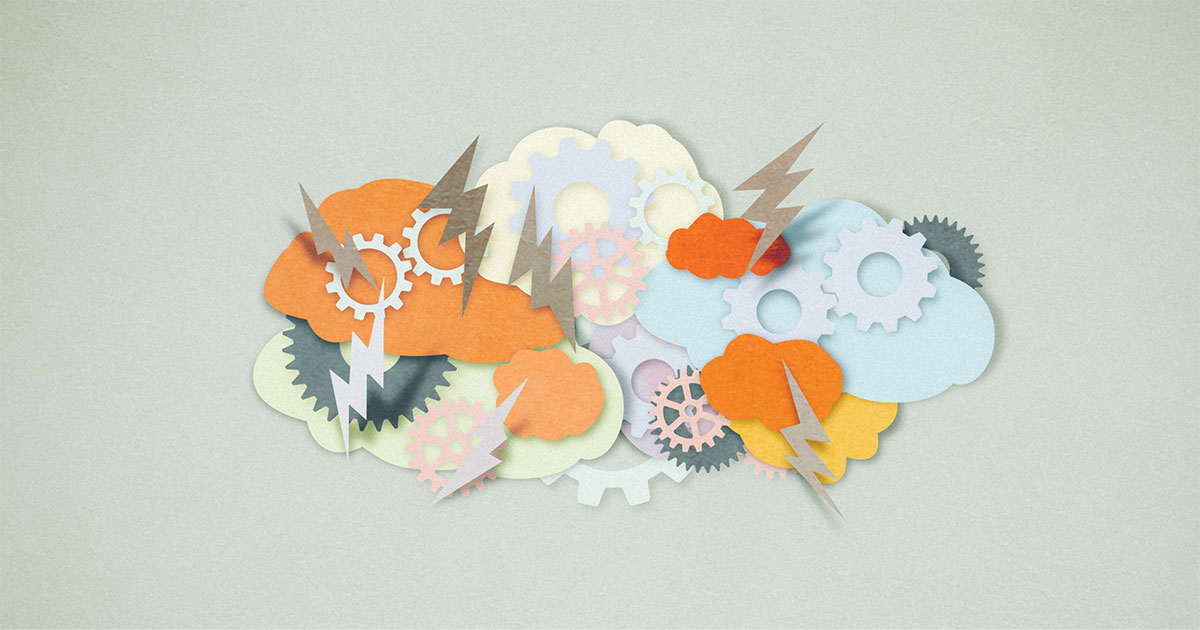Stress and mental health often go hand-in-hand. Continuously feeling stressed or turning to negative coping mechanisms can impact you physically and mentally. You can find yourself on edge, experiencing brain fog, and you may even fall ill more often than what could be considered normal.
In short, long-term stress can push you to your mental and physical limits. Unfortunately, substances are often used to cope with the mental and physical effects of stress, which can further exacerbate mental health issues and lead to a substance use disorder (SUD).
Stress and SUD
While stress can impact anyone, it can be especially damaging during recovery from a SUD. In fact, substance use disorder often begins with the use of substances to self-medicate, distract, or otherwise numb the physical and mental pain associated with stress.
While alcohol and other substances may feel like a solution, it is far too easy to become dependent on achieving emotional regulations through a substance versus learning how to cope with and deal with stress yourself. Drugs and alcohol can also alter the chemistry within the brain, worsening symptoms associated with a wide variety of mental health disorders.
Over time, you may find yourself in a circular pattern of feeling stressed, turning to unhealthy coping mechanisms, and experiencing the resulting impacts on your mental health. This can then lead you to experience worsened stress and search for ways to cope all over again.
Understanding the various ways stress can affect mental health can help you develop healthy tools for stress management that are not substance-related. Healthy coping can improve your mental health and allow you to let go of various stressors.
What Is Stress?
First and foremost, stress is normal and is experienced by everyone. It is a natural response to a situation that is considered threatening or dangerous. When you experience stress, your body responds by triggering a physical and mental reaction. How this reaction is managed can be negative or positive.
In a positive scenario, these responses can help alert you to danger, inspire you to feel motivated to make a change or help you to adapt to a new situation. In a negative scenario, you may respond irrationally, suppress emotions completely, or rely on drugs or alcohol to numb the natural emotional response you experience.
Since stress is a normal occurrence, it is not considered an illness in and of itself. However, chronic stress, or consistent or frequent stress in your life, can increase your risk for various mental health conditions, such as anxiety, depression, or substance use disorder.
Situations that cause stress can vary among people. Common life stressors can include relationships, children, finances, education, employment, and the demands of day-to-day life. Even certain times of the year can be more stressful than others, such as the holiday season, when family and financial demands can feel overwhelming.
In addition, some stressors can be handled immediately, while others may be long-term or permanent. Stressors can include:
- Lack of a support system
- Experiencing a major life change
- Poor physical health
- Inability to sleep at night
- Threats to your well-being with no clear solution
Whatever your unique stressors may be, they can have a lasting effect on your physical and mental health. If you’re in recovery, these stressors can often begin to feel overwhelming on top of the various stressors associated with your new life in recovery. Understanding how stress impacts your mental health and what you can do to help can be especially beneficial for those who want to avoid harmful coping mechanisms.

Stress and Your Mental Health
The impacts of stress on your mental health can vary just as much as the original stressors. Stress can cause mild to severe cognitive, behavioral, physical, and emotional symptoms. The reasons for this are biological in nature.
When you experience stress, your body’s nervous system takes control. This system regulates the functions of all organs, including the heart, stomach, intestines, and more. In the moment, you can feel your muscles tense, and you may experience an increase in your heart rate and breathing. If the stressful event feels dangerous, your body may prepare itself for fight or flight.
In small doses, the stress response can carry benefits, such as the instinct to remove yourself from a dangerous situation or improved thinking skills in an important moment. Stress, when managed appropriately, can help you think on your feet and experience motivation to tackle other difficult tasks. However, when a person is unable to manage their stress or stresses are frequent, these responses can be draining and overwhelming. Here are some common signs and symptoms of long-term stress.
Feeling Overwhelmed
Stressors are everywhere, and how they impact your life can vary drastically. What might be a small roadblock for one person could be a complete derailment for another. One of the most common symptoms of stress is feeling like it is all too much. When you feel overwhelmed, you likely also feel easily irritated and on edge. It may also feel impossible to deal with what is causing the stress, allowing the stress to continue for an extended amount of time.
Feeling Hopeless and Depressed
Stress can cause you to feel like things simply cannot get better or that life is hopeless. Letting intrusive thoughts take over can extinguish any sense of happiness or hope. Unfortunately, feelings of hopelessness and depression can be worsened by the use of substances. Various substances are known to interact with chemical receptors in the brain that release the neurochemicals necessary to regulate emotion.
With long-term substance use, you may no longer be able to successfully regulate your own emotions. This can trigger a dangerous cycle of feeling hopeless, turning to harmful substances, and then experiencing worsening negative mental health symptoms.
Panic Attacks
Stress can also trigger panic attacks in some people. A panic attack is a feeling of sudden and intense anxiety. Common symptoms include shaking, increased heart rate, difficulty breathing, and feeling disoriented. Panic attacks can result in your becoming fearful of situations, places, or people that could cause stress. This can cause further issues, such as feelings of isolation or hopelessness.
Lack of Self-Confidence
Frequent and long-term exposure to stressors can negatively impact your self-esteem. Stress can make you feel overwhelmed, alone, and unable to connect with yourself or others. This can impact self-confidence, which can lead to harmful coping mechanisms, such as turning to drugs or alcohol to fill a perceived void.
Numbness or Indifference Toward Family and Responsibilities
Long-term stress can impact the relationships you have with others. This ties into feeling overwhelmed, depressed, or detached. Instead of dealing with what causes stress, it becomes easier to isolate yourself and close off the outside world. This can impact things like personal relationships or even your success at school or work, which can lead to more stress.
Other Physical and Emotional Symptoms
Long-term stress, along with the various impacts of stress above, can contribute to additional symptoms. Unfortunately, these symptoms often serve to exacerbate feelings of stress. You may experience the following:
- Mood swings
- Trouble sleeping
- Loss of appetite
- Diminished sex drive
- And more
How to Cope with Stress
As mentioned, there are several triggers that could cause stress, and these are often just as unique as the individual and their life situation. Identifying your triggers is an important step in developing personalized ways to deal with your stress and better manage your mental health. Finding what works best for you may take some trial and error, but once you identify things that can help you manage your stress, you’ll likely experience improvements in your overall mental health.
Here are some common ways to cope with stress.
Practice Mindfulness
Practicing mindfulness is a healthy way to cope with the various stresses of life. Being mindful is all about being present in the moment. It is the ability to take a step back when faced with a stressor, allow yourself to think it through, and consider what would be the best step forward for you.
Practicing mindfulness involves several different stress relief practices. Mindfulness can include deep breathing techniques, meditation, yoga, daily affirmations, journaling, and so much more. What is most important is developing the ability to realize you are starting to react to a trigger and determining what path you could take to deal with that trigger.
Exercise Regularly
Exercise is a great way to keep stress from negatively impacting your mental health. Exercise encourages the brain to release stress-relieving hormones (endorphins) that can promote both physical and mental health. Fortunately, there is no specific exercise that works better than any other – it all comes down to personal preference.
Many people enjoy the body and mind connection that comes with activities like yoga and pilates. Getting out in nature can also be beneficial in many ways. You can run, hike, or do your preferred activity at a level you find comfortable while also getting away from the demands and distractions of everyday life.
Keep a Journal
A journal is a great way to learn what your stress triggers are – reviewing your notes after a stressful event can help you identify its source. Keeping a journal provides a safe space for exploring your deepest thoughts and emotions without fear of judgment or critique. Journals can also provide a detailed account of your highs and lows, allowing you to see how you’ve grown and changed over time.
There is a wide selection of journals available, each suited for a different purpose. You can choose a plain lined journal, one with daily prompts, a gratitude journal, or if you are in recovery, there are journals designed to move with you through the various steps. No matter your journaling goals, keeping a journal can help provide you with a place to express your thoughts about stress.
Build a Support System
Building a strong support system is key to promoting mental health, especially if you find yourself experiencing symptoms of long-term stress while in recovery. Stress and other negative triggers can quickly make you feel isolated, which can further impact your mental health. Having the ability to unload or problem-solve with others can help reduce the impact stressors have on your well-being.
Developing a support system can take many forms, including talking to friends or family who you know have your best interests at heart, attending support groups, consulting a healthcare provider, or meeting with a therapist. What matters most is that your support system consists of positive people who can help you implement positive coping strategies.
As mentioned, support can be especially important for individuals in recovery. If you’re in recovery, you may have had to break ties with certain friends or family that encouraged or enabled the use of harmful substances, as well as people who were not supportive of your efforts to recover. Seeking the right influences, especially in times of stress, can help you stay on the road to recovery.
Eat a Healthy Diet
Eating a balanced diet can help reduce the impact of stressful triggers as well as help stabilize your mood. What you put into your body can impact several aspects of your life. For example, eating unhealthy foods can impact your organ systems, contribute to depression and anxiety, and prevent you from getting a good night’s rest. Eating unhealthy can also cause unwanted weight gain or loss, which can further impact feelings of self-confidence. While it is okay to indulge from time to time, striving to eat a well-balanced diet can optimize brain and body function and create the best environment possible for stress management.
Engage in a Hobby
Hobbies are a great way to cope positively with stress. They can provide a healthy and productive distraction from the potentially overwhelming feelings of stress. Whether you choose to re-engage with old hobbies or begin new ones, hobbies can open new doors to creativity and allow you to focus on something that makes you happy. Hobbies can include crafting, playing music, drawing, sculpting, hiking, biking, and everything in between.
Seek Treatment for Substance Use Disorder
Stress can increase your vulnerability to substance use disorder. Stress, substance use disorder, and negative impacts on mental health create an unhealthy cycle that can begin to affect every aspect of your life. Worse, long-term stress can lead to intrusive thoughts that can become paralyzing.
Without healthy coping mechanisms in place, it can seem like a quick solution to turn to drugs or alcohol. Many of these substances are affordable, accessible, and in many cases socially acceptable. They interact with the body and mind, often creating a numbing or euphoric effect that minimizes or eliminates the stress response. However, developing a tolerance can mean you need to consume more to achieve the desired effect, which can become a full-blown SUD quickly.
Treatment for substance use disorder can break this cycle by providing a means to detox, a path for learning about your triggers, and a resource to discover which healthy coping mechanisms work best for you. The best path to recovery is one that can address more than just substance dependence. The body and mind are deeply connected and often need dual support for long-term success. The right treatment helps address the body and mind to provide tools for sober living.
 A Better Understanding of Stress and Mental Health
A Better Understanding of Stress and Mental Health
Avise Wellness Collective provides support and services for individuals dealing with substance use disorder and mental health disorders. We provide a variety of services specifically designed to help develop the positive coping skills necessary to improve mental health and prevent relapse.
Contact us to learn more about addiction recovery in Pennsylvania.



